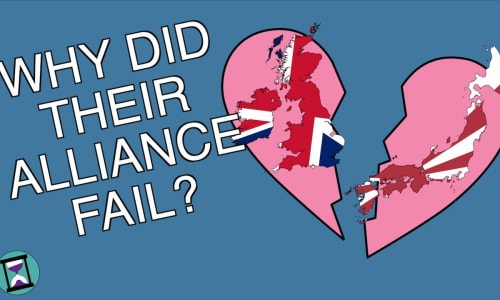See all History Matters transcripts on Youtube

Why did the Anglo-Japanese Alliance Fail? (Short Animated Documentary)
3 minutes 51 seconds
🇬🇧 English
Summaries Topics Transcript Chapters Titles Socials Twitter Blog Post Newsletter Quotes Quizzes Ask ChatGPT

Omnivision Solutions Ltd
- Getting Started
- Create Transcript
- Pricing
- FAQs
- Recent Transcriptions
- Affiliates